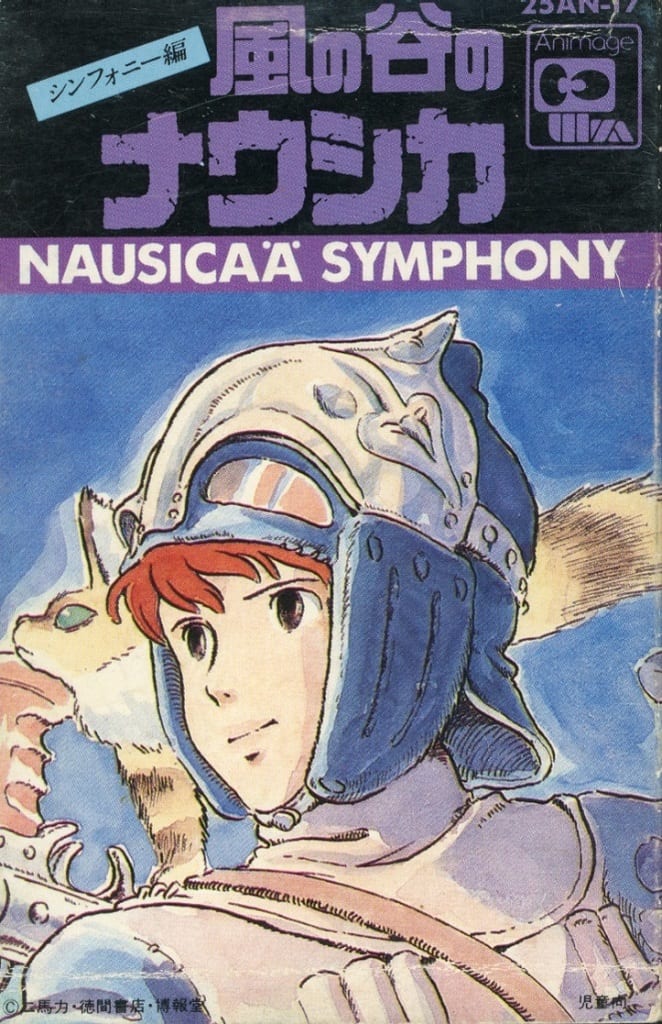宮崎駿成名代表作:風之谷
《風之谷》(風の谷のナウシカ/Nausicaä of the Valley of the Wind)是由宮崎駿執導的經典日本動畫電影,於1984年3月11日在日本首映。根據宮崎駿的在《Animage》上的同名漫畫改編而成,是他在成立吉卜力工作室之前創作的作品之一。電影由Topcraft製作,東映公司發行,片長117分鐘,音樂由久石讓創作。
主要人物包括娜烏西卡,風之谷的公主,擁有與大自然溝通的特殊能力,致力於保護環境和人類。她的父親吉爾是風之谷的國王,支持娜烏西卡的和平理念。庫夏娜是多魯美奇亞帝國的公主,軍事領袖,對娜烏西卡的理念持懷疑態度。阿斯貝爾是培吉特族的王子,最初與娜烏西卡為敵,但後來成為她的朋友和盟友。奧比拉是風之谷的老婦人,具有智慧和預言能力,告訴眾人有關古老的預言,「一位站在金色草原上,能帶給世界和平的身穿異國藍色衣服的人」。
故事設定在經歷「火之七日」災難後的未來世界,地球上的生態系統被菌類劇毒的「腐海」侵蝕。人類被巨型昆蟲及發出瘴氣的森林圍繞,被迫在少數未受污染的土地上生存,而這些土地也面臨著來自腐海擴散的威胁。主角娜烏西卡是小王國風之谷的公主,能夠駕駛滑翔翼並與大自然和動物溝通,致力於找到解決腐海問題的方法。她發現腐海其實是地球自我淨化的一部分,腐海的植物能吸收土壤中的毒素,將地球恢復到原本的健康狀態,而王蟲則是守護腐海的生物。
劇情的高潮在於多魯美奇亞帝國企圖利用一種古代巨神兵武器來摧毀腐海,但這樣的行為只會帶來更大的災難。而眾多的王蟲受到培吉特族用受傷的幼小王蟲為誘餌,煽動他們集體朝風之谷前進。巨神兵因在倉促的情況上戰場後毀滅,娜烏西卡成功從培吉特族救回幼小王蟲,企圖阻止王蟲對人類的攻擊,最終被王蟲踩踏後重傷,但逐漸平息怒火的王蟲群開始伸出金色觸手,成功醫治娜烏西卡。而整個場景正好應證風之谷的古老傳說。最終多魯美奇亞帝國的軍隊撤離,培吉特族人開始重新種植樹木,世界又開始恢復生機。
《風之谷》在日本上映後取得巨大的成功,製作成本約1.8億日元,斬獲超過14億日圓的票房成績,獲得影評人的高度評價。這部電影奠定宮崎駿作為日本動畫大師的地位,為後來成立的吉卜力工作室打造良好基礎。影片中對環保主題的探討和獨特世界觀設計,成為後來許多動畫作品的靈感來源。其後續影響不僅體現在動畫領域,還延伸到全球的文化和環保意識提升上。之後宮崎駿繼續創作更多經典作品,如《天空之城》、《龍貓》、《幽靈公主》和《千與千尋》等,這些作品更進一步鞏固吉卜力工作室在全球動畫界的領導地位。
"Nausicaä of the Valley of the Wind" (風の谷のナウシカ) is a classic Japanese animated film directed by Hayao Miyazaki. It premiered in Japan on March 11, 1984. Based on Miyazaki's manga of the same name serialized in "Animage," it was one of his works before founding Studio Ghibli. The film was produced by Topcraft, distributed by Toei Company, and has a runtime of 117 minutes, with music composed by Joe Hisaishi.
The main characters include Nausicaä, the princess of the Valley of the Wind, who has a special ability to communicate with nature and is dedicated to protecting the environment and humanity. Her father, Jihl, is the king of the Valley of the Wind and supports Nausicaä's peaceful ideals. Kushana is the princess and military leader of the Tolmekian Empire, skeptical of Nausicaä's beliefs. Asbel is the prince of the Pejite tribe, initially an enemy of Nausicaä but later becomes her friend and ally. Obaba is an elderly woman from the Valley of the Wind who possesses wisdom and prophetic abilities, telling people about an ancient prophecy of "a person in blue standing in a golden field who will bring peace to the world."
The story is set in a post-apocalyptic future world ravaged by the "Seven Days of Fire." The Earth's ecosystem is being eroded by the toxic "Sea of Decay," a forest filled with poisonous fungi. Humanity is surrounded by giant insects and forests emitting toxic gas, forcing them to live on the few remaining uncontaminated lands, which are also threatened by the spread of the Sea of Decay. Nausicaä, the princess of the small kingdom of the Valley of the Wind, can pilot a glider and communicate with nature and animals. She is dedicated to finding a way to solve the problem of the Sea of Decay. She discovers that the Sea of Decay is part of the Earth's self-purification process, with its plants absorbing toxins from the soil to restore the Earth to its original healthy state, and the Ohmu acting as guardians of the forest.
The plot reaches its climax when the Tolmekian Empire attempts to use an ancient Giant Warrior weapon to destroy the Sea of Decay, but this act would only bring greater disaster. The Pejite tribe uses a wounded baby Ohmu as bait to provoke a massive herd of Ohmu to march towards the Valley of the Wind. The Giant Warrior, deployed hastily, self-destructs. Nausicaä rescues the baby Ohmu from the Pejite tribe, attempting to stop the Ohmu's attack on humans. Ultimately, she is severely injured by the stampeding Ohmu, but the herd, calming down, uses their golden tentacles to heal her. This scene fulfills the ancient prophecy of the Valley of the Wind. In the end, the Tolmekian army retreats, the Pejite people start replanting trees, and the world begins to recover.
"Nausicaä of the Valley of the Wind" achieved great success upon its release in Japan, with a production cost of about 180 million yen and grossing over 1.4 billion yen at the box office. It received high praise from critics and established Hayao Miyazaki as a master of Japanese animation, laying a solid foundation for the later establishment of Studio Ghibli. The film's exploration of environmental themes and unique world-building inspired many subsequent animated works. Its impact extends beyond the animation field, influencing global culture and raising environmental awareness. Miyazaki continued to create more classic works such as "Castle in the Sky," "My Neighbor Totoro," "Princess Mononoke," and "Spirited Away," further solidifying Studio Ghibli's leadership in the global animation industry.
.jpg)

照片:產品官網
- 1
- 2
- 3
- 4
